Causes and Risk Factors of Dementia in UK
VerifiedAdded on 2023/04/22
|12
|939
|182
Presentation
AI Summary
This research project aims to identify different causes and risk factors associated with dementia and determine different ways to reduce the risk in UK. The research methodology includes a descriptive approach with qualitative and quantitative techniques. The data analysis includes thematic and statistical methods. The study concludes that risk factors can be changed by changing lifestyle and medical treatment. The most important ways to control the negative impacts of risk factors of dementia are social connection and intellectual activity, physical exercise and diet, mental stimulation, quality sleep, stress management, medical treatment, and avoiding excess consumption of alcohol.
Contribute Materials
Your contribution can guide someone’s learning journey. Share your
documents today.
1 out of 12

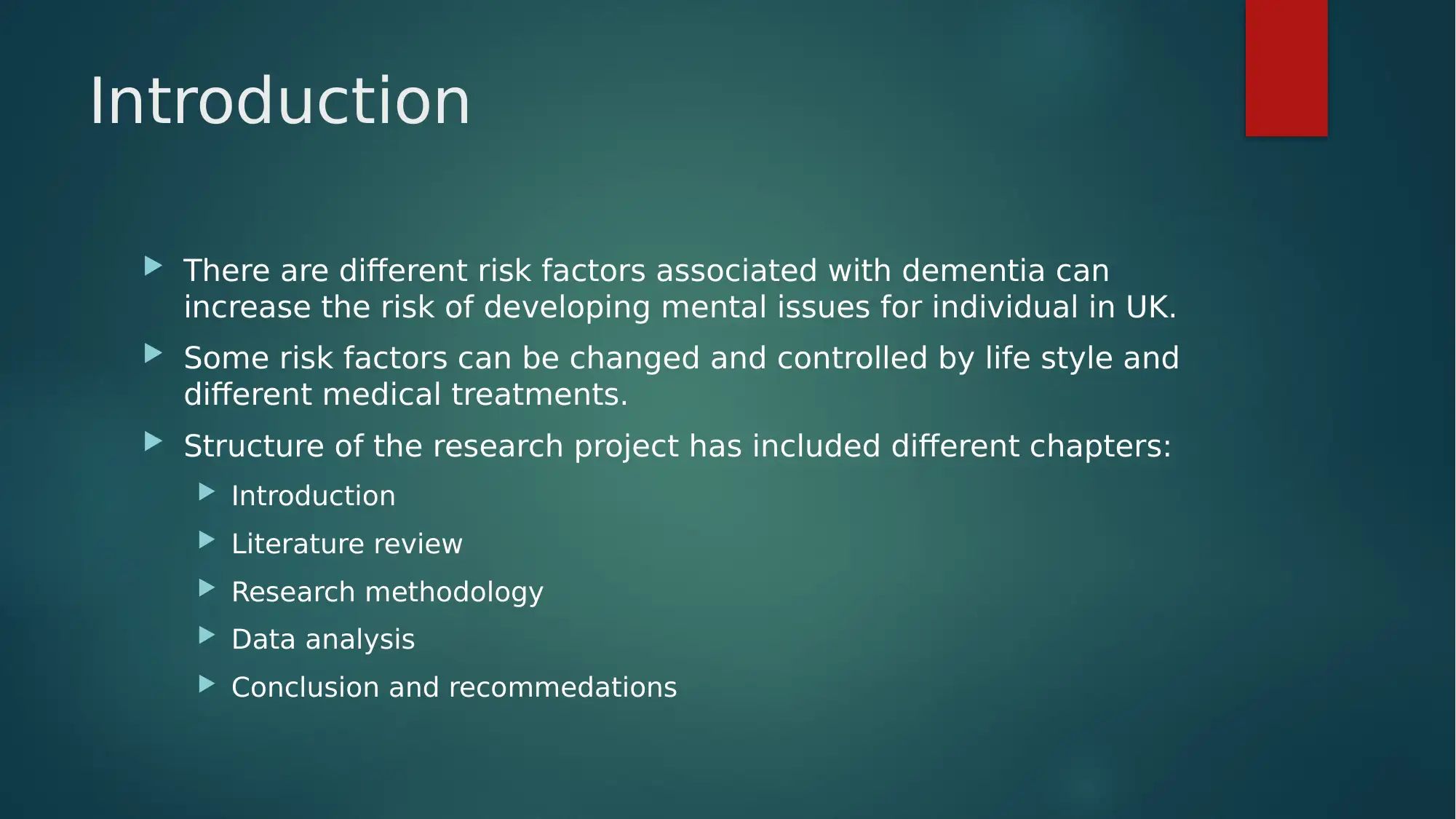
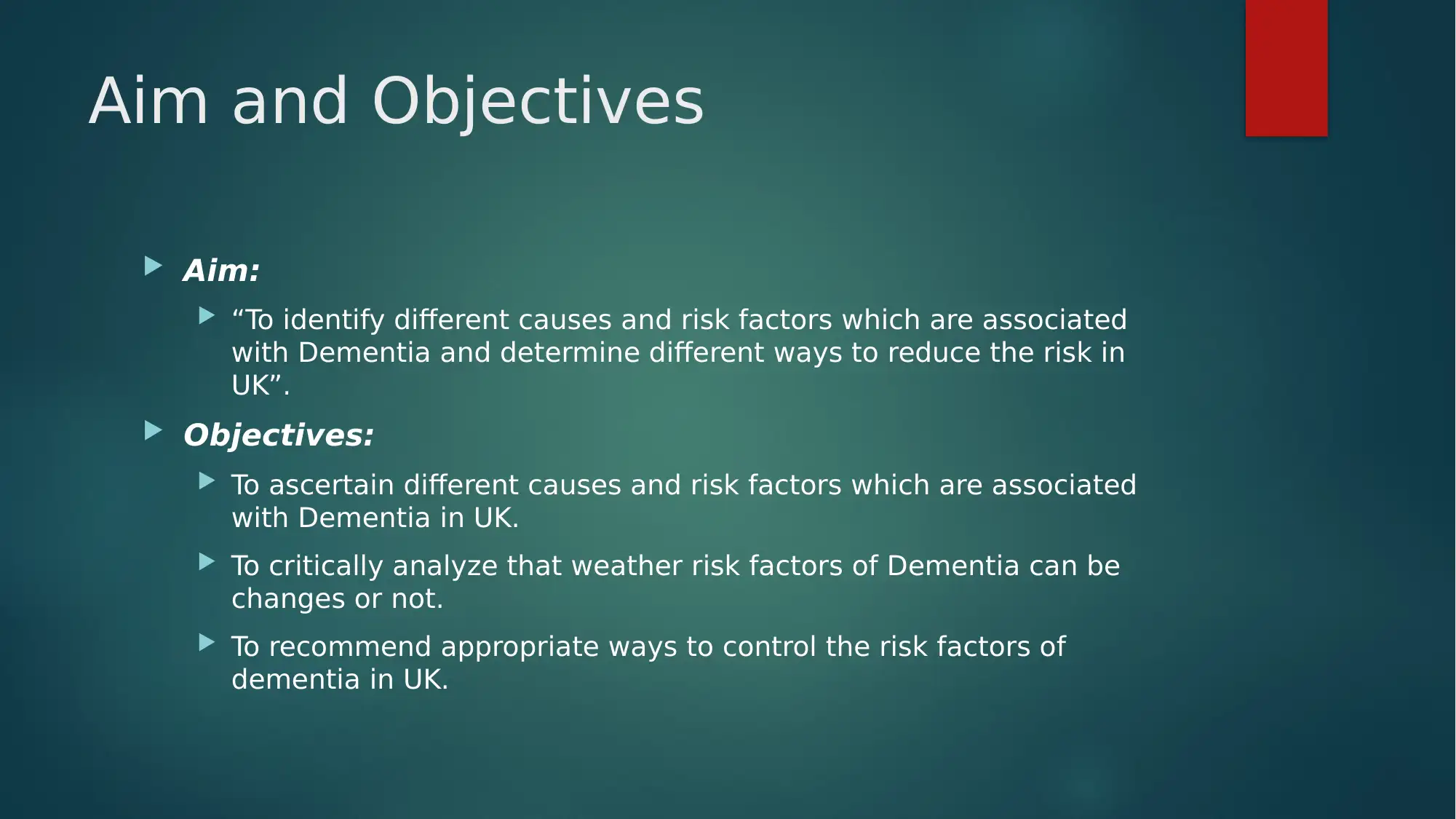

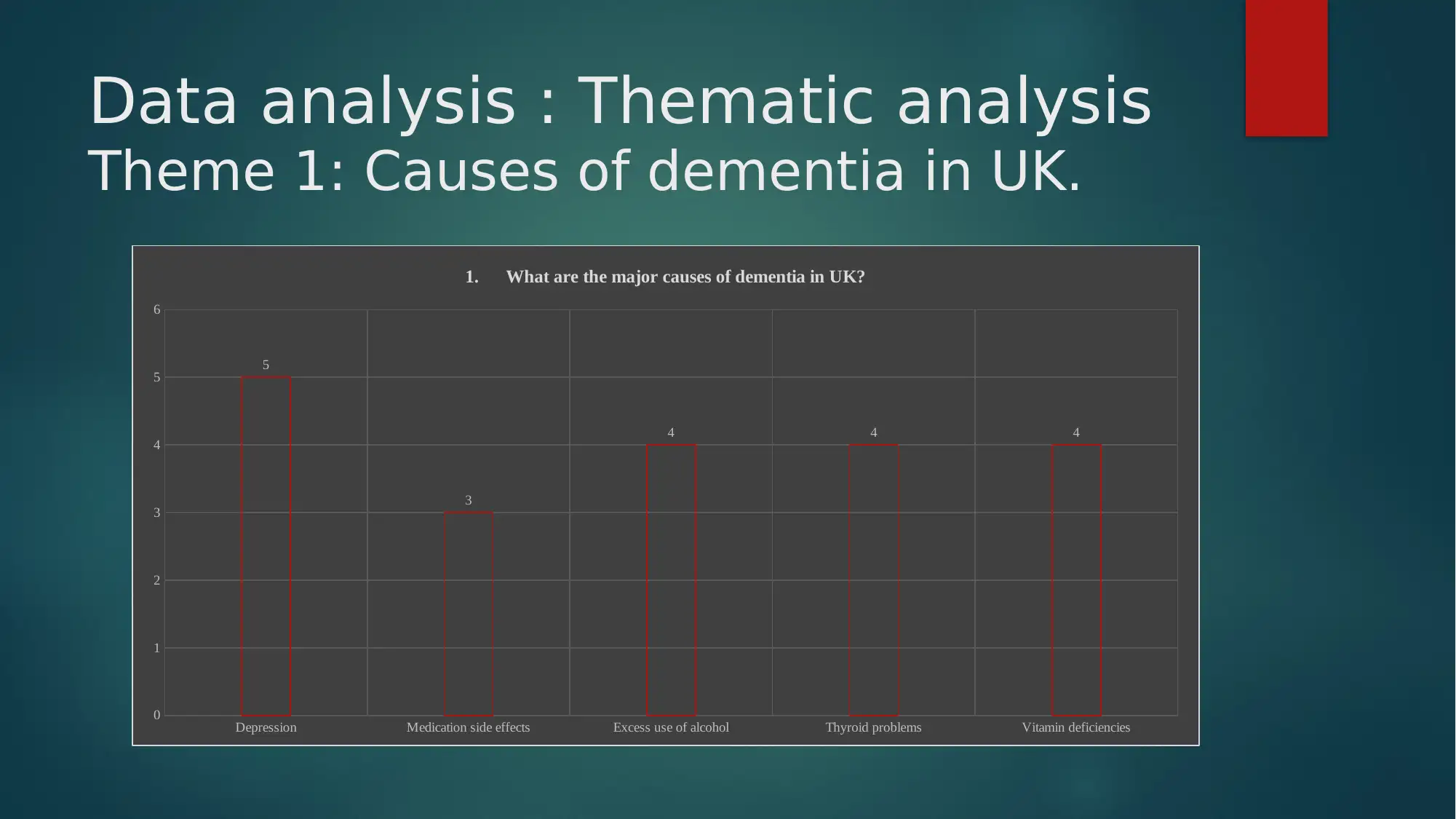
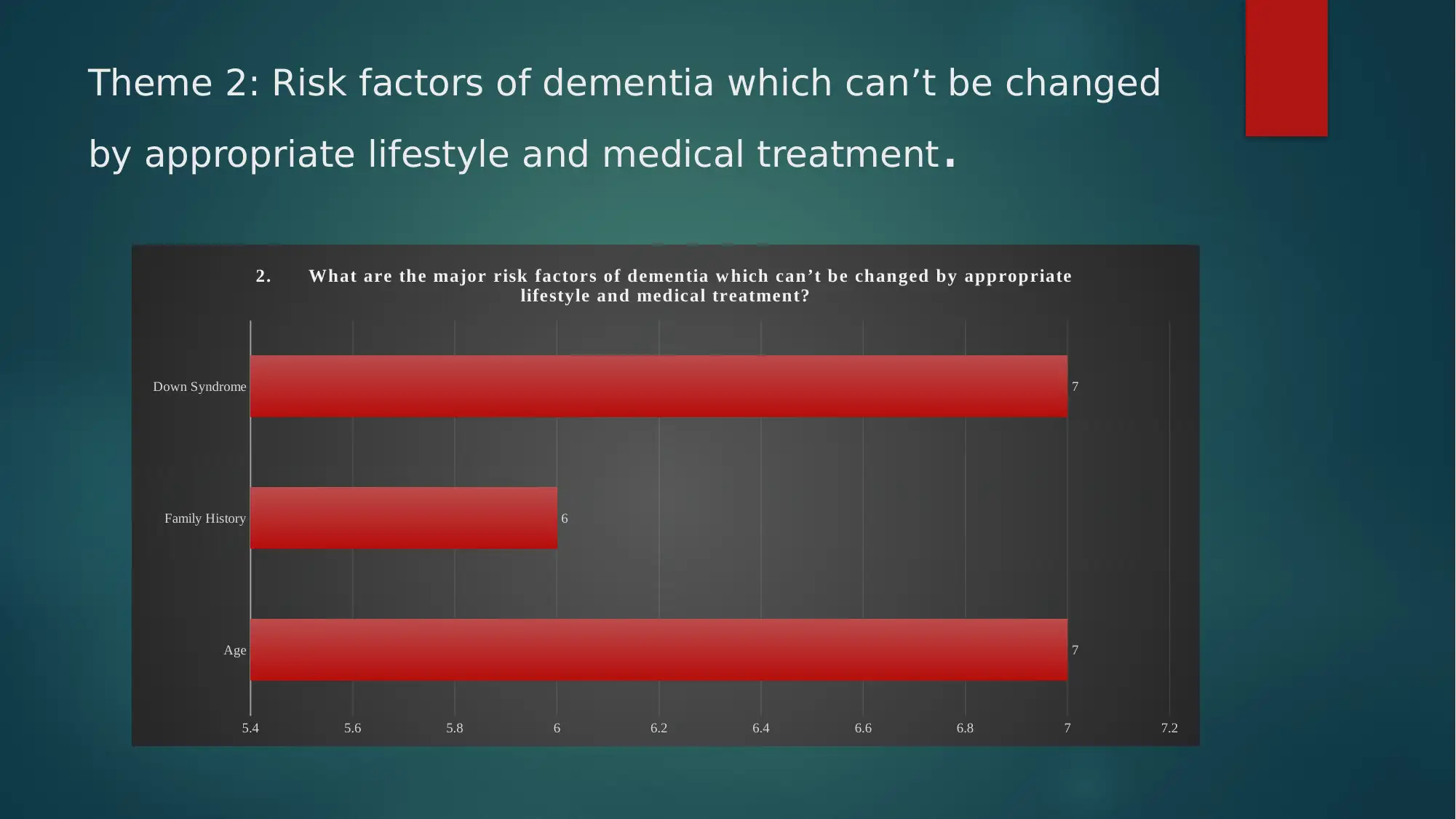
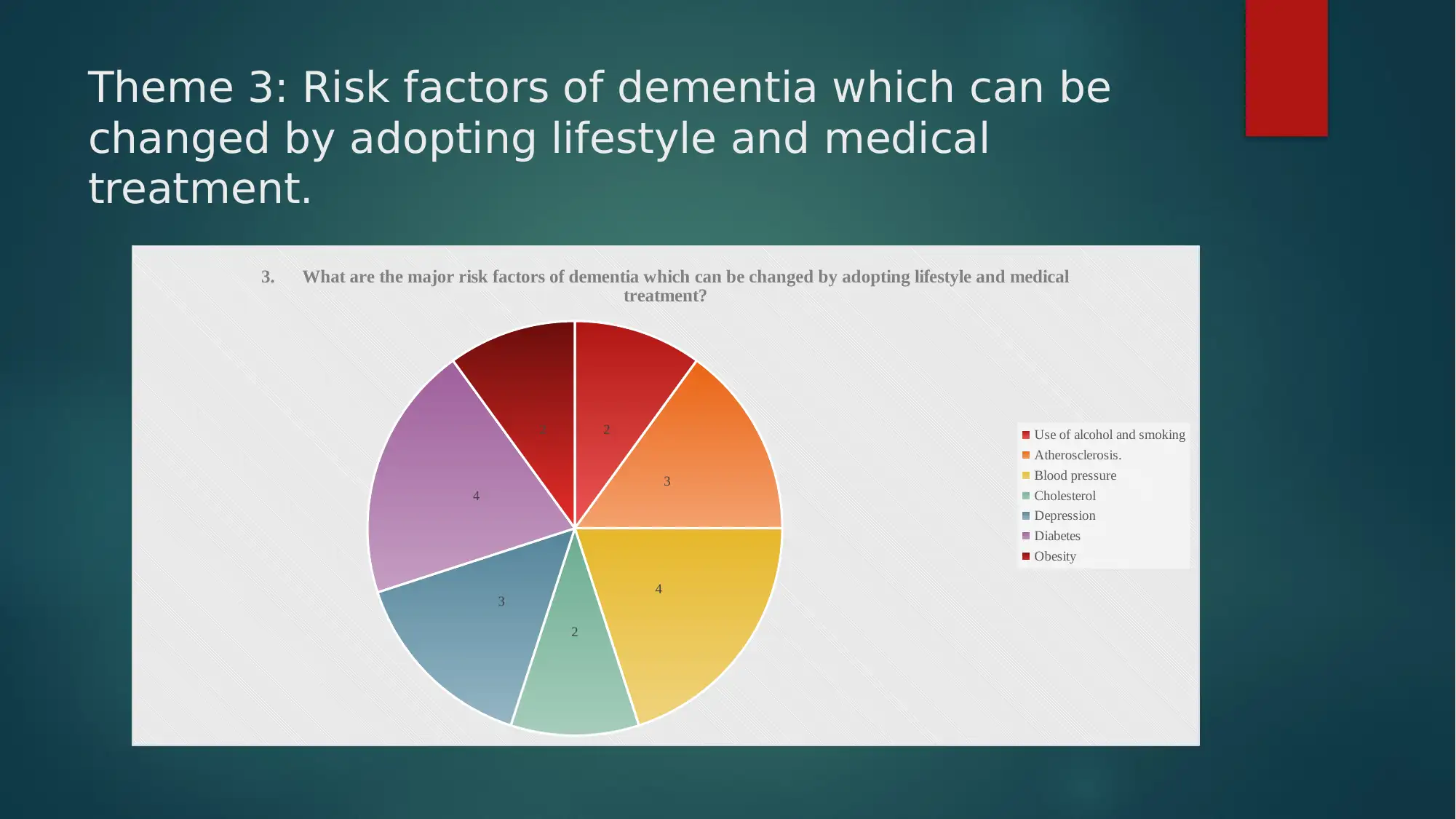
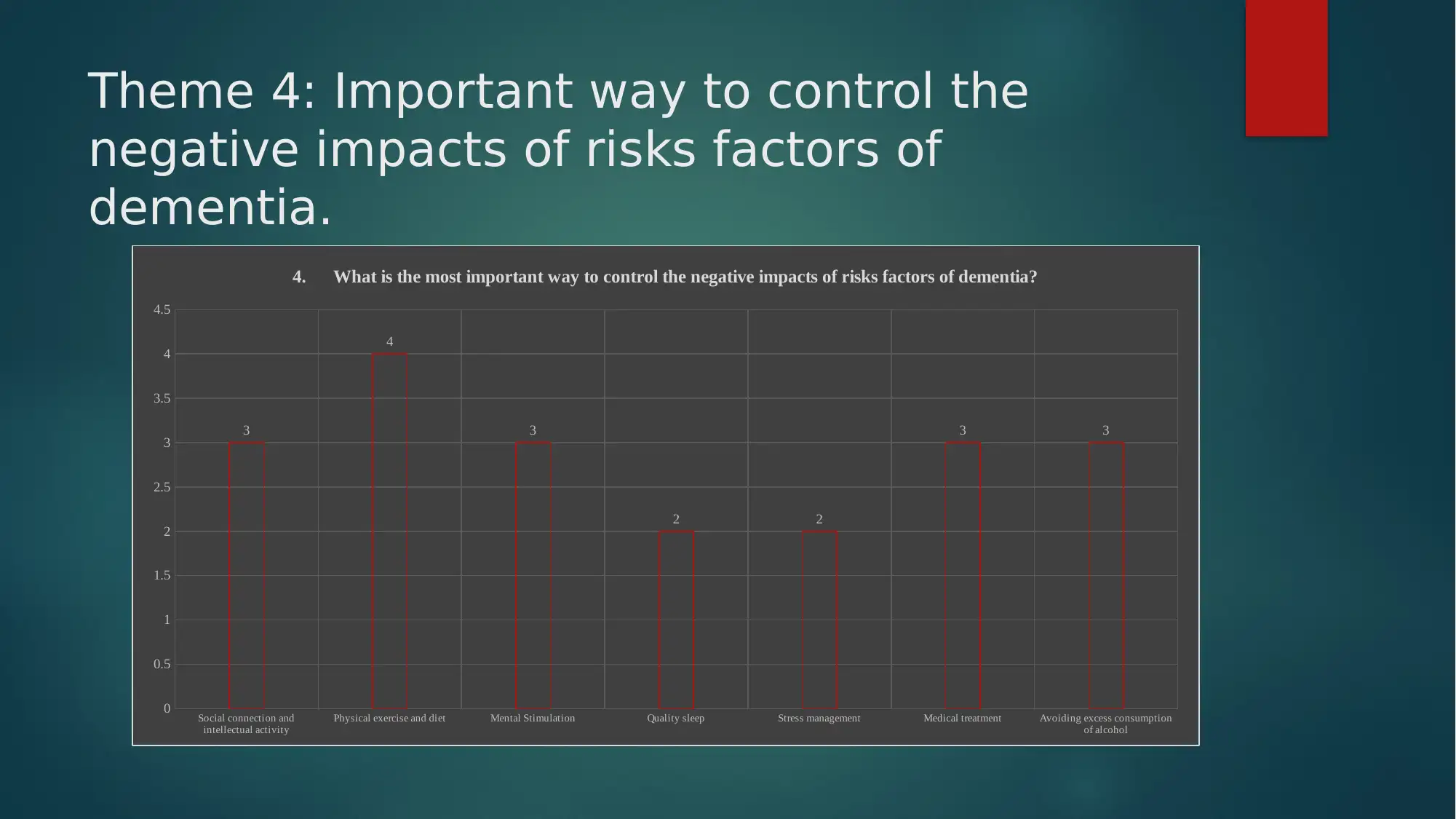

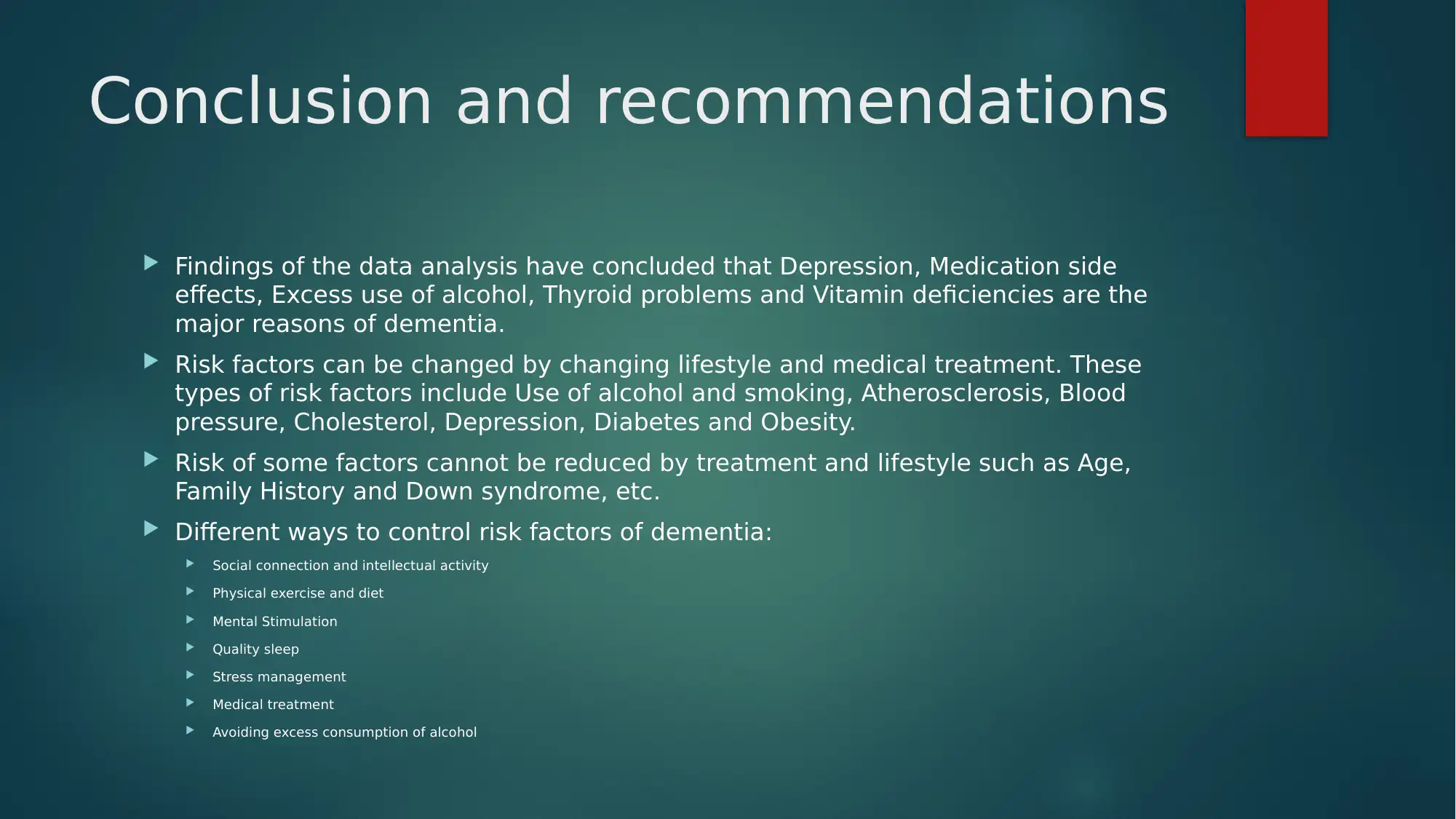

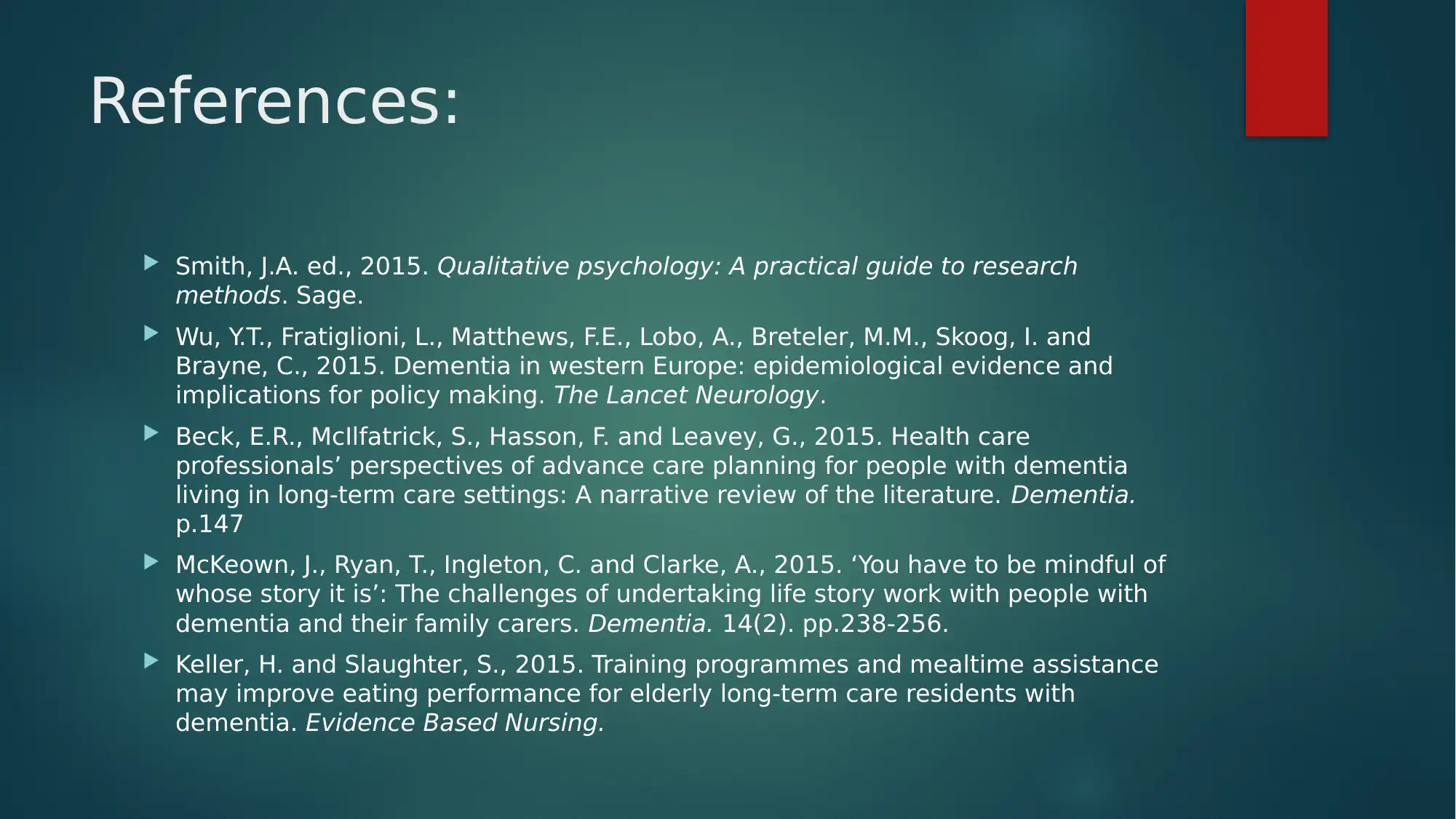





![[object Object]](/_next/static/media/star-bottom.7253800d.svg)